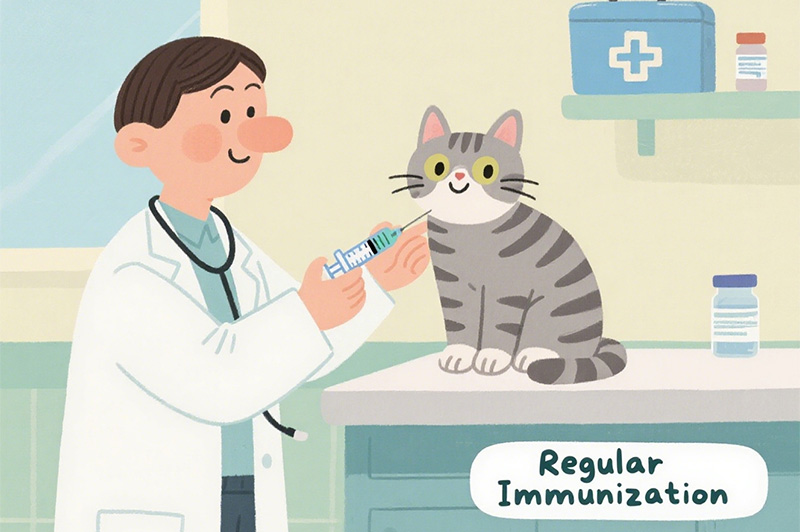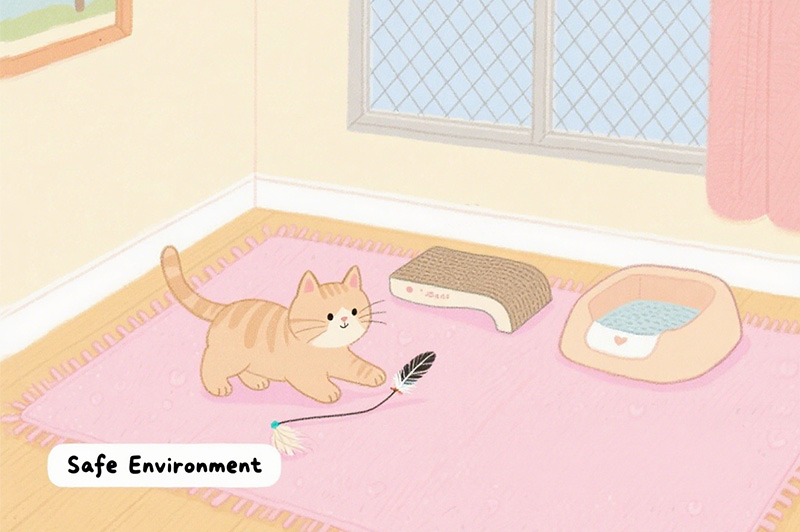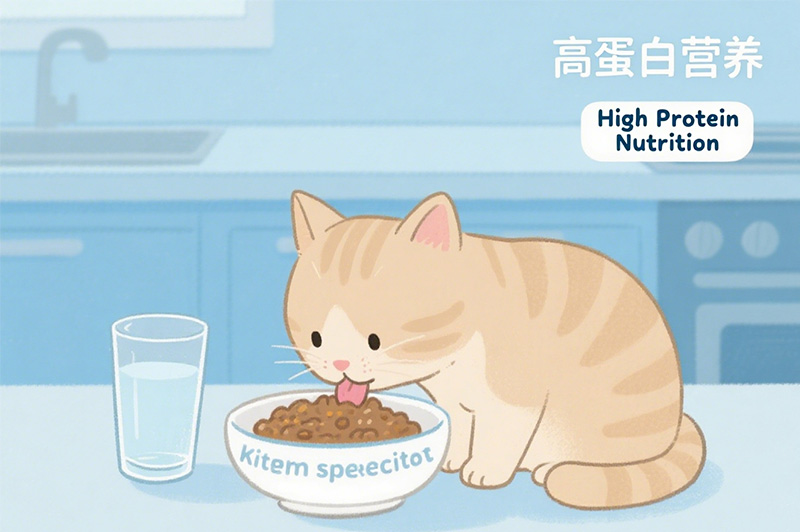Physiological Characteristics
Kittens experience rapid growth and development (encompassing bones, muscles, and internal organs), have an underdeveloped immune system, exhibit intense curiosity and a strong exploratory drive, and are in a critical window for learning.

Core Care Guidelines
1. Nutrition
- Food selection: Opt for kitten-specific food (formulated for their growth needs), rich in high protein (>30%), moderate fat, DHA (to support brain development), and calcium-phosphorus (to strengthen bones).
- Feeding routine: Feed small, frequent meals (4–6 times daily) and ensure access to ample clean drinking water at all times.
2. Medical Care

- Vaccinations: Adhere to the scheduled vaccination plan. Core vaccines include feline panleukopenia (feline plague), feline herpesvirus, feline calicivirus, etc.
- Deworming: Conduct regular deworming to address both internal and external parasites.
- Sterilization: Recommended around 6 months of age. This helps lower the risk of age-related diseases and mitigate behavioral issues (e.g., marking, aggression).
3. Environment & Safety
- Safe space: Establish a warm, secure living area. Keep the kitten away from hazards like high fall risks, exposed electrical wires, and toxic plants (e.g., lilies).
- Essential supplies: Provide appropriately sized cat scratchers (to protect furniture) and litter boxes (choose a shallow design for easy access, as kittens may struggle with deep boxes).
- Socialization: Initiate gentle socialization training early. Expose the kitten to different people, household sounds (e.g., vacuum cleaners), and mild environments to build confidence.

4. Behavior & Habit Training
- Interactive play: Use cat toys (e.g., feather wands, crinkle balls) for daily interaction. Avoid using hands or feet during play—this prevents the kitten from developing biting/scratching habits toward humans.
- Grooming adaptation: Help the kitten get accustomed to regular grooming (brushing is especially important for long-haired breeds to prevent matting).
- Basic handling: Acclimate the kitten to gentle physical contact, such as touching its paws, ears, and belly. This eases stress during future vet checks or grooming.




